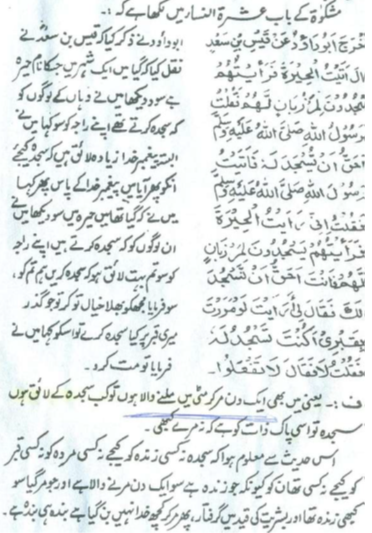According to Ahmad Rida Khan, only Allah in reality exists, and nothing besides Allah (really) exists. He writes:
Translation
No one (in reality) knows anything besides Allah. Indeed, Allah alone enjoys existence in a real sense. The Prophet ﷺ deemed the truest word the Arabs have spoken to be the statement of Labid, “Beware, everything besides Allah is false.” (1)
It is established according to us that the statement la ilaha illAllah according to the commoners means that “nothing besides Allah is worshipped”; according to the elite it means that “nothing besides Allah is sought after”; according to the more elite it means that “nothing besides Allah is witnessed”; and according to the masters it means that “nothing besides Allah exists”. These are all true. Iman is based on the first, righteousness pivots on the second, traversing the path is completed by the third and reaching (Allah) is constituted of the fourth. (al-Dawlat al-Makkiyyah, p.199)
Barelwis think it is offensive to say Allah has the power to create a likeness of the Prophet ﷺ even while acknowledging He will never do so.
Ahmad Rida Khan denies the very existence of the Prophet ﷺ, wa ‘l-‘iyadhu billah.
Surely, Barelwis should be more offended by this?
(1) This statement has a number of other possible meanings (besides “nothing but Allah exists”) as mentioned by the commentators like Ibn Battal, Ibn al-Mulaqqin, al-‘Ayni etc.
For example, it could mean: a) everyone besides Allah will die; b) all activities that don’t lead to Allah are futile; c) everything that people worship besides Allah are “false” deities; d) the existence of everything else is only possible, while Allah’s existence is necessary; e) because all that exists apart from Allah results from His agency, nothing exists besides Allah and things He has created.
The Qur’an states: “Everything is perishing besides His countenance.” (28:88) The Qur’an also states: “Allah is the Real, while those they call upon besides Him are false.” (22:62; 31:30)




 Posted by Abdullah
Posted by Abdullah 
